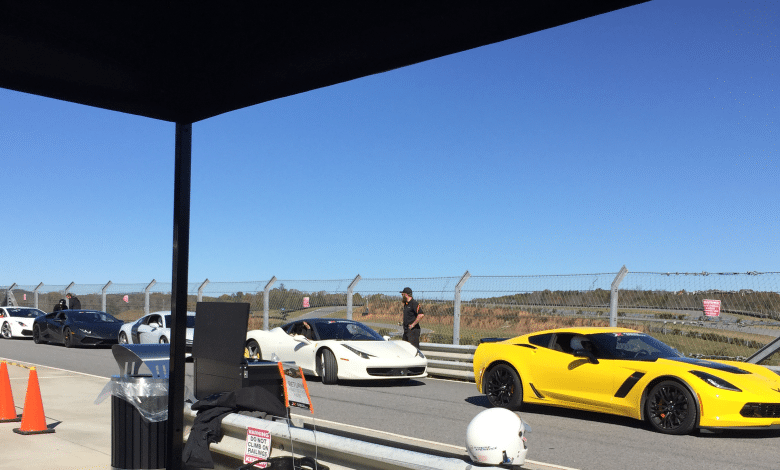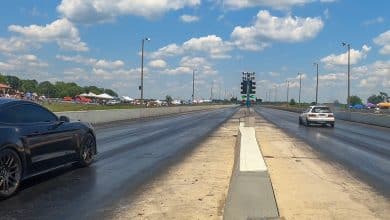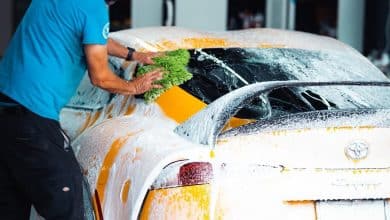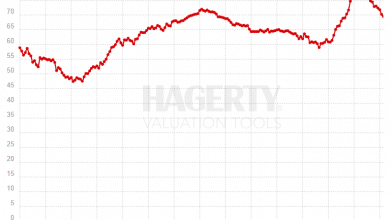Insurance For Car Enthusiasts

Let’s take a look at some of the biggest questions that come up when considering insurance for car enthusiasts.

OEM vs Replacement Parts
How do I make sure that if my car is wrecked/damaged, the insurance company will pay for OEM (Original Equipment Manufacturer) parts?
Not all insurance companies offer a policy that guarantees replacement parts are OEM. For example, State Farm’s standard policy language states that that you agree to having your car fixed with OEM, or OEM like replacement parts. When replacement parts are an option, I can tell you from personal experience of working in a body shop, that’s what you are going to get. Replacement parts mean higher markup for the body shop and lower cost for the insurance company. That’s likely fine for most people but it can be a big deal for an enthusiast. Since OEM parts are created by the vehicle manufacturer, they fit as intended and usually are under warranty. Replacement parts are cheaper, they usually fit just fine but occasionally the alignment or quality is off or materials used are subpar. If it is important to you to have only OEM parts, call your insurance company and see if they will accommodate an amendment to your policy or look for an insurer that will. This could be particularly concerning if your car is high value or potentially collectible.
Additionally, insurers will default to restoring the vehicle back to factory condition after loss so if you have modified the look of the car with different parts, make sure you keep photos and receipts to show the claims adjuster what was truly lost in the incident.

Are Modifications Covered?
If my car is stolen, damaged or wrecked, will my insurance company give me the money back that I spent on modifications?
Let’s make sure we cover the basics first. There are three parts to insurance, comprehensive, collision and liability. In Georgia, you are required to have liability insurance as it covers damage that to someone else’s car/property that you were deemed responsible for having caused. The second is Comprehensive, that covers theft and damage from natural occurrences such as a tree falling on your car. Lastly, there is collision insurance that pays to repair YOUR vehicle in an at fault accident. Beyond that, there are other add on policies for uninsured motorists, towing, and covering other special circumstances that would otherwise be excluded.
It’s not common for insurance companies to offer additional coverage for modifications but it’s not impossible to find. Off hand, I know of one- a policy endorsement (add on coverage) called a Custom Parts and Equipment policy that covers up to $4,000 of non-factory parts by Esurance (Allstate). However, If something like that is not available from your insurer another strategy is to document the items that you have changed on the vehicle, assign a value to those items, and if I loss occurred, submit that information to your claims adjuster. It’s not guaranteed that the insurer will agree with your value assessment or pay you for the modifications but you certainly will have a fighting chance of recovering some of your money. Good documentation is going to include photos and original receipts for money spent on parts and service/installation. They won’t pay you for the time you spent wrenching in your garage, so don’t ask.
If you can find an insurer that will do agreed value (you and your insurer both agree on your cars value regardless of what current street or appraised value is), that might be a big help for certain owners with lots of money invested. Just do yourself a favor and check in once a year so that you can account for the ebbs and flows common in valuation. An Mitsubishi Lancer Evolution for example could likely be worth 10-15% more right now than it was a few years ago. As the popularity of a certain make and model changes, so can value.

Can my insurance be canceled for mods?
If I mod my car, will my insurance company deny my claim or cancel my coverage?
Here’s some inside information from an underwriter at a national automotive insurance company: “Not all insurance companies are modification friendly. You want to be careful what you tell your insurance agent as certain types of modifications can make you ineligible or cause coverage to be denied. When shopping for insurance, it is best to probe for information regarding modifications before disclosing what you have or intend to have on your vehicle. Lifting a truck is a common example, a lifted truck raises the center of gravity and makes the vehicle more likely to flip during an evasive maneuver. Insurance companies see this as a higher risk and will often times drop a customer if they find out the vehicle’s ride height has been altered. This isn’t as common for lowering a car but it could still fit within the definitions of changing the vehicles ride height and not meeting required bumper height laws. Another example of modifications that will get the attention of an insurance company is obvious racing modifications. Think roll cages, harnesses, drag parachutes, large rear slicks, blowers sticking out of the hood. A majority of the people that work for insurance companies are not car savvy but they will catch obvious things and assume the car is used for racing. Something like a turbo kit would fly under the radar a lot easier. If found it would be grounds for cancellation though, a turbo increases the power of the vehicle and the intent of most insurance companies is to not insure vehicles being modified for performance driving. Now, it is important to remember that just because you have modified the , it does not mean your claim will be instantly denied. In my experience when a loss occurs, claims will pay the loss but will then advise underwriting that the vehicle was modified in such a way that may have contributed to the loss. At that point it will be up to underwriting to determine if they continue with the policy or cancel the risk.”

Are Wrecks At Events Covered?
If I drive my car on a track day and wreck, will my insurance cover the loss?
Pretty much all insurance companies have exclusions on their policies for racing. Drag racing, circuit racing, hill climb, rally, even auto cross can cause issues. This also applies for track days. We as enthusiasts know that track days are not competitive, you do not go wheel to wheel with your friends. Even still, track days are usually referred to as a high performance driving event, or HPDE for short. Even through beginners generally have a trained instructor riding along with them to keep them in check and a strict point-by for passing is used to keep people on the track safe insurance companies are not going to cover any losses that occurred on the track. Most insurance companies have added provisions to their policies to exclude any and all HPDE’s as they present an unknown risk. Even with the watchful eye of a trained instructor accidents still happen. These losses can be very costly since speed is usually a large factor in the accident. The higher the speed, the greater the damage will likely incur. Drivers are also responsible for any damage their car causes to the race track and those walls can be surprisingly expensive.
Our racing underwriter friend from earlier has this to say: “There are a few good options for a supplemental insurance policies to cover a track day. Lockton Motorsports track insurance is one. They operate a little differently from a normal insurance carrier. You buy a policy to cover you for the day(s) during a specific event. You get to insure your car, all the modifications made to it, and the estimated value you wish to insure it for. This is a great option if you own an expensive car or still have a lien on the title. The only downside is the deductible. The lowest I’ve ever experienced was 10% of my cars value. I value my Porsche at $50,000, so if I were to have a loss it would cost me $5,000 just to cover my deductible, that is the cost of a track ready Miata. It is not a cheap option but losing $5k is better than losing $50k – especially in this situation where my everyday insurer would deny my claim completely.”

What about unique cars?
I’m working on a full rebuild or purpose built racecar, how do I protect my project?
Hagerty offers full custom car insurance for antiques and heavily modified cars. Look to them for insurance when you have met the two following conditions: #1, The modifications you’ve done to your car are VALUED at over $10,000 and #2, The vehicle is no longer driven on the street. Hagerty only insures vehicles with “use consistent with a car collector” They say they’ll cover your car “to and from the track, but not on it”. They will sell you an agreed value policy to cover the money you’ve put into your project but will absolutely check to make sure that every driver in the house has a different vehicle to drive daily.
If a company like Hagerty is the right choice for you, you’ll be pleased to know they offer some very specific coverage for your project, such as add on policies that cover the car while it’s “under construction”, coverage for tools and extra parts (that haven’t been installed yet), coverage for any special memorabilia you own, and an amendment/endorsement that allows you the ability to keep the damaged carcass of your vehicle in the event of a total loss.
If you do drive your project on the street, you still have options. I’ve found a company called K&K Insurance that claims to cover street driven race cars. Once you get this specialty, there aren’t a ton of choices but there’s always some company happy to take your money.





